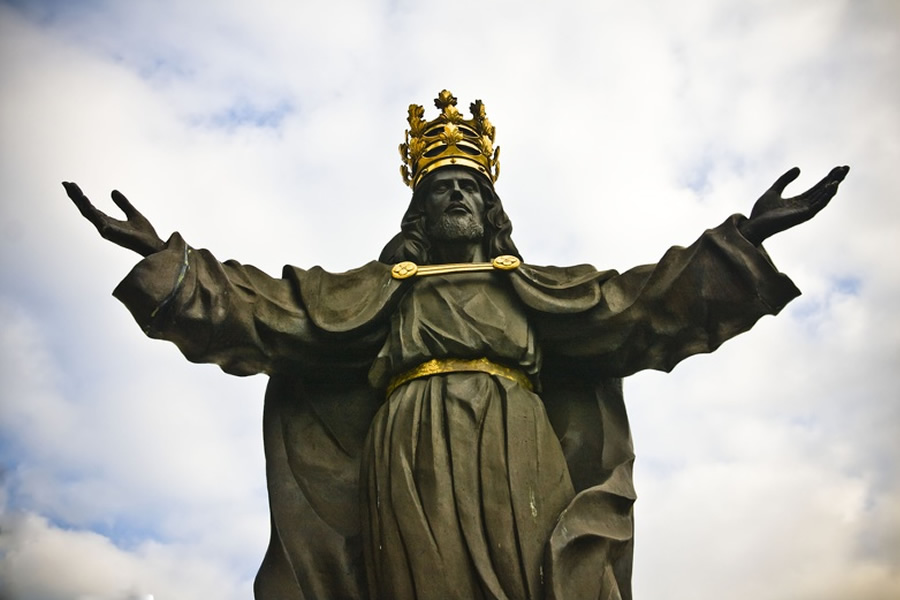
The Feast of Christ the King
11-24-2019Weekly ReflectionOn the last Sunday of the liturgical year the church celebrates the Feast of Christ the King. This feast is observed on this Sunday as it helps us to meditate on Christ the King and Lord and at the same time reflect on the Second and Final Coming of Christ, the last Judgment, and the end of the world. The Solemnity of Christ the King is a newer feast in the Catholic Church. In 1925, Pope Pius XI introduced the feast of Christ the King as a warning against the totalitarian leaders that were cropping up in the early part of the 20th century. It was a statement against the situation of Europe between the two World Wars. Today, the feast invites us to do a soul-searching of our own leadership style.
Many in today's democratic set up will discover that the title "King" does not register too well. Hence they feel that a better image of today's Feast is achieved by presenting it as the Feast of Christ the Leader. Leadership is the theme of the feast day Mass, as we have seen in the different readings and it is an important theme for us, as Christians, to consider. All of us some time or other would like to think of ourselves as leaders. If we listen to the average conversation and we find that there is little done by others that we could have done better. Jesus certainly knew the oppressive nature of secular kings and in contrast to them he connected his role as king to humble service, and commanded his followers to be servants as well. In other passages of Scripture, his kingdom is tied to his suffering and death. While Christ is coming to judge the nations, his teachings spell out a kingdom of justice and judgment balanced with radical love, mercy, peace, and forgiveness. When we celebrate Christ as King, we are not celebrating an oppressive ruler, but one willing to die for humanity and whose loving-kindness endures forever.
Reflecting on this feast Pope Benedict XVI said: We know from the Gospels that Jesus refused the title of king when this was intended in a political sense, along the lines of the "kings of the nations". Instead, during his passion, he took upon himself a singular regalness before Pilate and declared that his kingdom is not of this world. The Father entrusted to his Son the mission of giving eternal life to man, loving him even unto the supreme sacrifice, and at the same time conferring on him the power of judgment, from the moment he became Son of man, like us in every way. The Gospel insists upon the universal royalty of Christ the Judge, with the magnificent parable of the final judgment.
On this day, Christ the King invites us to exercise our leadership role in charity and fairness, in humility and service, like a shepherd who is willing to take risks for the sheep.
BACK TO LIST